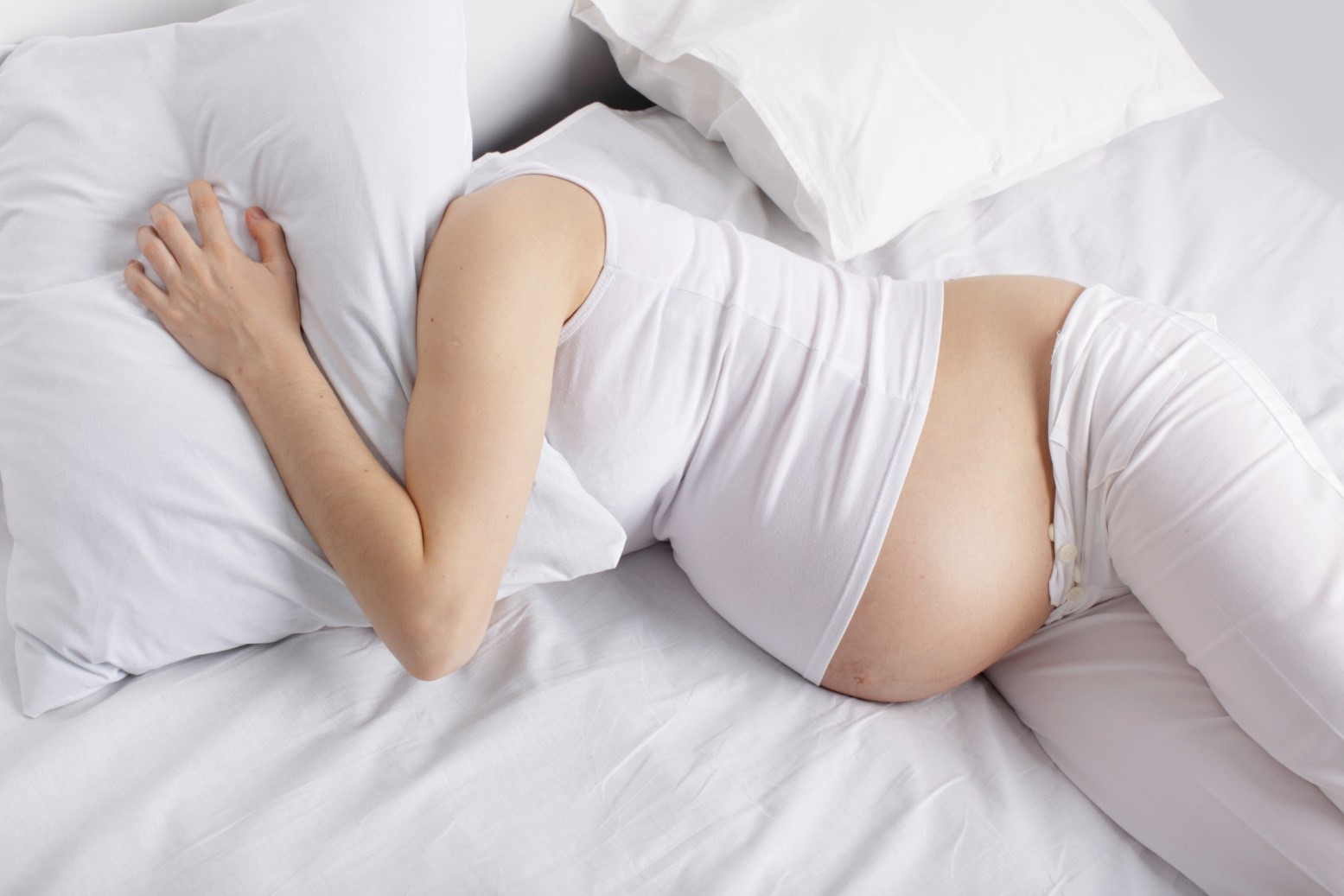Pregnancy can be both a joyful and stressful time. There is happiness about the expectant arrival but there can be anxiety preparing for the new arrival. One detail that many mothers are not prepared for is the negative impact on their sleep. Here are eight common problems and potential solutions:
- Increased Urinary Frequency
This problem can occur in the first or third trimester. It is due to a combination of factors such as increased production of progesterone and compression of the bladder by the uterus.
Solution: Avoid fluids two hours before bedtime and try to empty your bladder completely. Of course, stay well hydrated the rest of the day.
- Nausea
This is very common during the first trimester, and even though called morning sickness, it can occur at any time, including bedtime.
Solution: Keeping crackers at the bedside and eating small amounts seems to avoid the empty stomach that contributes to this problem. In addition, ginger has also been found to be effective.
- Back Pain
This is quite common at the end of the second and throughout the third trimester. Your growing baby and a hormone called relaxin tends to weaken ligaments.
Solution: Use a pregnancy pillow and sleep on your left side. Pregnancy pillows support your abdomen and can be placed between your legs at the same time. Sleeping on your left side increases blood flow and oxygen delivery to your uterus and baby. In addition, exercises that increase back strength such as straight leg raises and pelvic tilts are safe and beneficial.
- Restless Legs Syndrome
Twenty percent of women experience Restless Legs Syndrome, usually during the third trimester. It is a major cause of sleep deprivation during pregnancy.
Solution: Make sure you are taking folate and iron. Daily exercise such as walking and stretching can help. Caffeine, nicotine, and alcohol can all worsen the problem. In some cases, especially when there is associated swelling, support hose can help. Finally, talk to your obstetrician. You may be on medications that are making it worse.
- Insomnia
The National Sleep Foundation, in their Sleep in America survey, reported that 79% of women describe difficulty falling or staying asleep during pregnancy.
Solution: Develop a calming bedtime routine and try to keep a stable sleep-wake schedule. Learn relaxation techniques such as progressive muscle relaxation, abdominal breathing, and guided imagery. Above all, practice good sleep hygiene, which means no caffeine after noon, and no computers, cell phones, or televisions at least one hour before bedtime. If sleep trouble continues, talk to your health care provider. Untreated insomnia, especially during the third trimester, has been associated with PPD (postpartum depression).
- Elevated Blood Pressure
Sleep apnea is a major cause of PIH (Pregnancy Induced Hypertension) as well as gestational diabetes. If you are among the 40% of women who snore during pregnancy, discuss this with your physician. You may be doing more than snoring. Your airway may be collapsing during sleep. Treating sleep apnea can bring down blood pressure and improve blood sugar levels.
- Leg Cramps
It is estimated that over one third of pregnant women suffer from severe leg cramps that awaken them from sleep. This can be due to low calcium and magnesium levels during pregnancy. Remember, your growing baby requires a lot of calcium.
Solution: Discuss this with your health care provider. Taking calcium supplements, or in some cases vitamin D3, may be necessary. Foods high in magnesium such as almonds, cashews, legumes, and dairy products, as well as stretching exercises, may be helpful.
- Nasal Congestion (Pregnancy Rhinitis)
This common pregnancy problem can be a major cause of discomfort and inability to fall or stay asleep. The congestion is due to a combination of high estrogen causing increased mucous, as well as a higher blood volume associated with pregnancy.
Solution: Elevate the head of your bed or use a pillow that does this. Avoid caffeine, which can exacerbate the problem. Steam, in the form of a hot shower before bed as well as saline nasal sprays can be helpful. Avoid spicy foods, which can intensify the problem.


